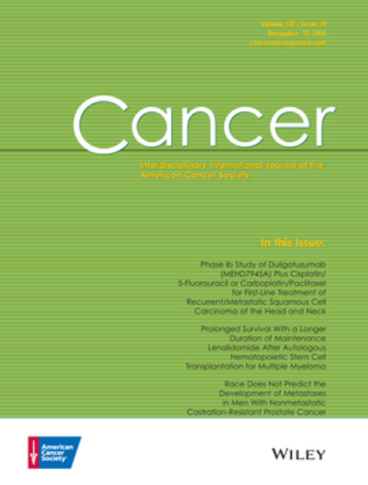National survey of financial burden and experience among patients with cancer and autoimmune disease receiving charitable copay assistance
Abstract
Background
Little is known about the role that charitable copay assistance (CPA) plays in addressing access to care and financial distress. The study sought to evaluate financial distress and experience with CPA among patients with cancer and autoimmune disease.
Methods
This is a national cross-sectional self-administered anonymous electronic survey conducted among recipients of CPA to cover the costs of a drug for cancer or autoimmune disease. Self-reported financial distress as measured by Comprehensive Score for Financial Toxicity as well as health care spending and experience with financial barriers to care were evaluated, as were perspectives on policy questions related to CPA and costs of care.
Results
Among 1566 respondents (1108 with cancer and 458 with autoimmune disease, median age 71, 51% female, 89% White, 69% household income <$60,000), 53% reported mild and 31% moderate/severe financial distress, despite CPA. Eighteen percent reported missing recommended care because of costs. Most respondents (96%) had Medicare, 55% reported supplemental insurance, and 66% believed that insurance would prevent them from facing high costs of health care. A total of 52% reported paying more than $100 monthly in drug costs and 41% spending more than 10% of monthly income on health care. Financial distress was similar among patients with cancer and autoimmune diseases. In multivariable regression analysis, younger age, less education, unemployment, higher comorbidity, and lower income were independently associated with higher financial distress.
Conclusions
This study informs policy debate over the role of CPA foundations in the U.S. health insurance safety net and highlights the inadequacy of Medicare to guarantee access to care for older patients with chronic illness.

 求助内容:
求助内容: 应助结果提醒方式:
应助结果提醒方式:


